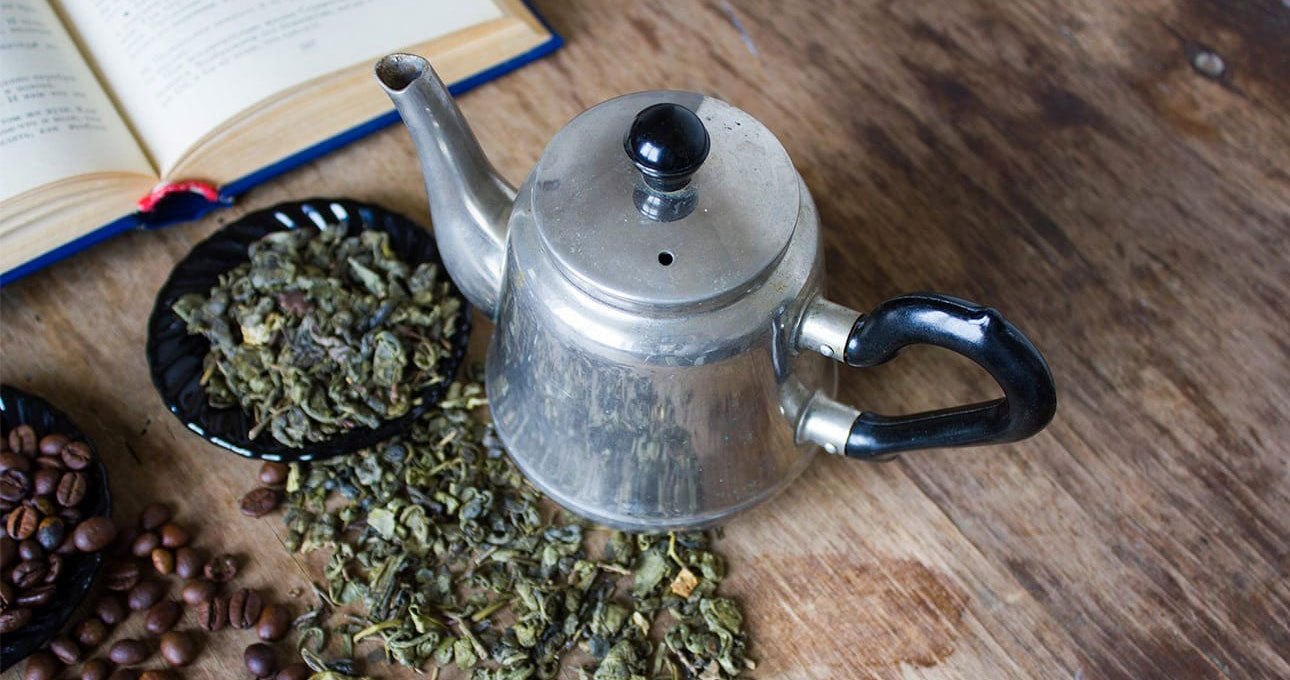No Products in the Cart


What’s better for me, tea or coffee? It’s a question we hear a lot here at SHREDZ. We are all looking for that fat-burning, health-boosting edge. Coffee and tea are essentially calorie-free and provide some pretty impressive health benefits. More than a beverage, coffee and tea have deep historical significance, are central to social events, and help mark time in cultures worldwide, whether that first-thing cup of coffee, mid-day tea, or after dinner espresso. And with so many varieties and flavors, there’s something for everyone.
But back to the question. If you’re faced with the simple coffee vs tea faceoff, which shines brighter for your health and fitness goals? The answer: both, but for different reasons.
First. Coffee.
The problem with “is coffee good for me” is that there are factors to consider that affect the answer. How your coffee is brewed, caffeine levels, how it’s consumed, and how much you drink all impact the health effects of coffee.
Diabetes: Scientists aren’t sure why, but it appears that regular coffee consumption protects against the development of type 2 diabetes.
Brain Disease: Regular coffee drinkers seem to have a much lower risk of developing certain brain diseases, including Parkinson’s disease, Alzheimer’s disease and dementia.
Liver disease: Coffee may protect against several liver diseases, including cirrhosis and liver cancer.
Happiness: Heavy coffee drinkers tend to be less likely to be depressed and suicidal.
Cardiovascular: Coffee drinkers seem to have a reduced risk of heart disease and stroke compared with abstainers.
Performance: Studies suggest that caffeine provides an edge with strength and athletic performance. Try a cup of coffee ½ hour before your next workout to see if the boost helps you do more and/or feel better at the gym.
Now…. This all sounds promising but what you put in your coffee can cancel out the positive effects, or worse, damage health. Calories from sugar, cream, and syrups add up superfast and can provide a meal’s worth of calories and fat. A typical medium latte contains 250 calories and almost 40 grams of sugar! So take your coffee black or use unsweetened almond milk, and try it sans sweetener or use a touch of calorie-free stevia.
What about caffeine’s short term effects? In moderate amounts, caffeine, which of course is a stimulant, gives us an edge by boosting memory, mood, reaction times, and the perception of increased energy. It can also help you shed fat by boosting your metabolism.
Finally, Too much caffeine, though—more than 6 cups’ worth a day—can backfire. This much caffeine can lead to trouble sleeping, upset stomach, tremors, irregular or high heart rate, irritability, and nervousness. These effects can undermine the health benefits you would be reaping from moderate coffee consumption. So be wise and limit your intake to about 4 cups a day.
Tea, whether green, black, or white, all come from the same plant, camellia sinensis. The varieties are in the processing. Since most of tea’s health properties span all types, we recommend using the tea that tastes best to you; but read on to learn about the few differences in health advantages of one type of tea over another.
All teas are high in disease-fighting antioxidants, especially polyphenols and in particular flavonoids (a type of polyphenol). These nutrients help detoxify harmful free radicals in the body, decreasing risk of inflammation, heart disease, stroke, cancer, and type 2 diabetes. They also lower cholesterol and help the body recover from health problems like heart attacks. Tea also seems to boost your immune system and prevent neurological decline.
L-theanine, an amino acid found in all tea, has a relaxing but not sedating effect on your mood. It also may boost brain health. Its most impressive property, though, seems to be its ability to help you focus.
In general, black tea has fewer antioxidants but more caffeine than green tea. Green tea has more of one particular compound—EGCG—which has been extensively studied and shown to decrease risk of cancer and cardiovascular disease.
If we look at tea drinkers as a group versus coffee drinkers as a group, there does seem to be a slight health advantage among the tea drinkers because of a lower risk of heart disease and stroke. But if you prefer coffee, never fear because it’s not about just one thing, like tea vs coffee, that determines your overall health and disease risk. It’s about all of healthy choices and tradeoffs, which span your entire lifestyle day to day, week to week, and year to year.
Someone purchsed a